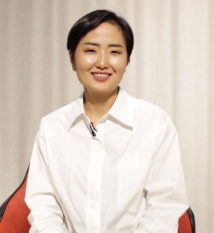Alumni Spotlight: Handaa Enkh-Amgalan (MPA-PNP 2019)

Handaa Enkh-Amgalan (MPA-PNP 2019) first applied to NYU Wagner after being drawn in by the school’s mission of public service. She was looking for a program that would provide her with structured knowledge of both US and international policy, and Wagner provided her with the opportunity to expand her knowledge of both. Now, Handaa works as a Program Coordinator for Quality & Learning for the International Rescue Committee (IRC)’s Uganda country office, where she provides technical support on program quality and strategy development to serve refugee and host communities. However, Handaa is also driven by a secondary personal mission: a desire to humanize and destigmatize tuberculosis (TB) throughout the world at large, and especially in developing countries. In addition to her work at the IRC, Handaa has also written a book. Titled Stigmatized, the book shares Handaa’s journey battling TB and the stigma associated with the disease, while reflecting on how her various identities (stigmatized, immigrant, woman, and nomad) inspired her to combine storytelling with activism to push for social change.
As a teenager in Mongolia, Handaa was diagnosed with TB. Upon her diagnosis, she was encouraged by family members and medical staff to hide her disease due to fears of social stigma and discrimination. Hiding such an important part of her life created an internal struggle that resulted in Handaa questioning her identity. It took almost a decade for her to realize that her TB diagnosis was not something to feel ashamed of, or be silent about. Over time, through living abroad while pursuing higher education, Handaa explored new perspectives and befriended individuals from diverse backgrounds (including those she met at NYU Wagner). These experiences helped her realize that being a TB survivor was a part of her identity that needed to be embraced. She realized that by remaining silent, she was inadvertently contributing to the stigma surrounding the disease. It was this realization that led her to write Stigmatized as a way to fight against the stigma and help end the silence around the disease.
By sharing her story in this book, Handaa hopes that people who are battling TB or other stigmatized diseases feel empowered to break the silence around these diseases and the stigmas surrounding them. She further hopes that the book will encourage policy makers, civil society, and international organizations to refocus their efforts on treating TB and other diseases medically while simultaneously considering how to eradicate the attached social stigmas. TB affects a significant portion of the world’s population—the World Health Organization estimates that 1.8 billion people are infected with TB—indicating the relevance and importance of Handaa’s story and mission. As the first Mongolian TB survivor to publicly share her story of overcoming the disease and its associated stigma, Handaa combines storytelling with activism by breaking the silence and trailblazing a path for others to follow courageously.
Of her experience sharing her story through Stigmatized, Handaa says:
“I firmly believe in the power of survivor culture that respects, listens to, and engages those with the lived experiences in decision-making processes to achieve social change. And this is a calling that I will continue to advocate for, using the knowledge, confidence, and skills I gained from NYU Wagner.”